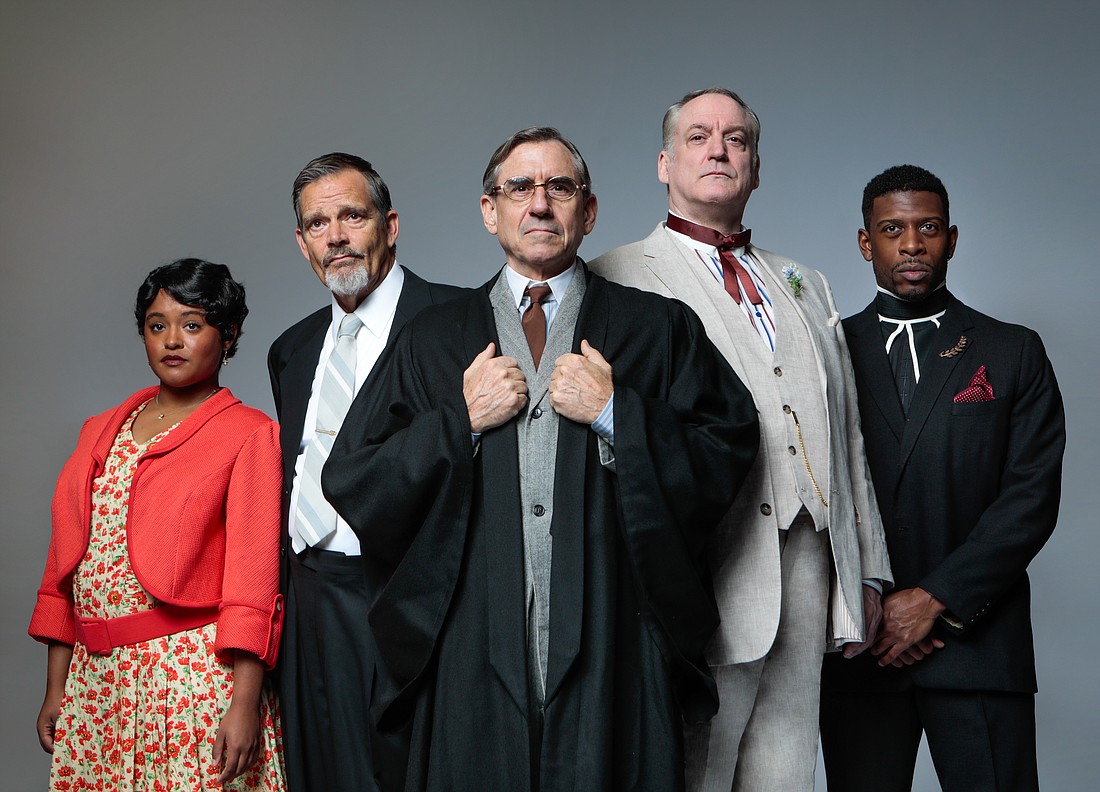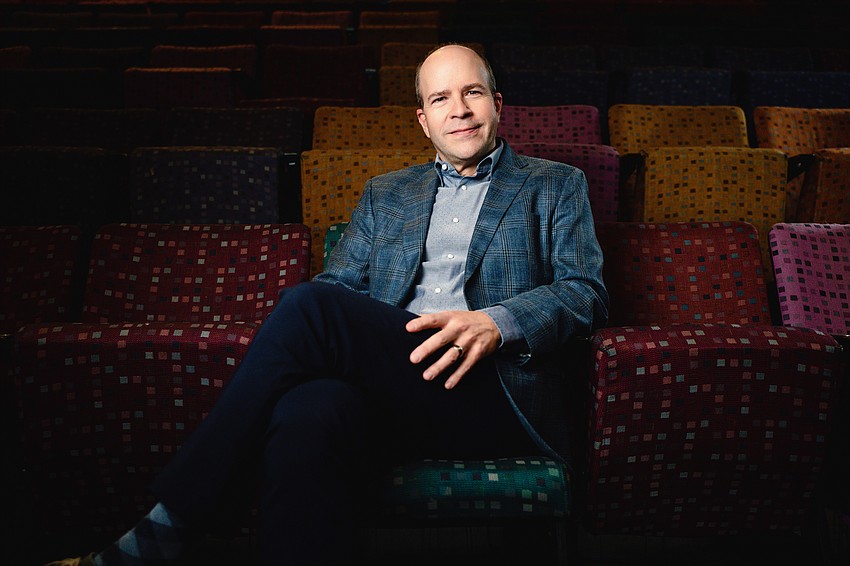- July 4, 2025
-
-
Loading

Loading

Jerome Lawrence and Robert E. Lee’s “Inherit the Wind” (1955) confronted the enemies of evolution. Their fictional depiction of the 1925 Scopes “Monkey Trial” dealt with a Tennessee teacher put on trial for stating Darwin’s theory in the classroom. In the play, the teacher was also a stand-in for witnesses forced to defend their lives in the devolutionary McCarthy hearings.
Peter Rothstein, Asolo Rep’s new producing artistic director, is now directing this evergreen American allegory. His character-centered approach is a natural evolution from his predecessor’s legacy.
Very much so. In so many ways, this play feels like it could’ve been written today. Jerome Lawrence and Robert E. Lee were really speaking about the McCarthy era. They were writing about another time to talk about their present.
Exactly. “Inherit the Wind” was originally an allegory for McCarthyism. At the Asolo Rep, we’re using it as an allegory for the dialogue our country’s having today — particularly in the state of Florida. In the world of this play, it’s a far more nuanced conversation than America’s contemporary debates in social media or in the real world. There are two different sides in this play. They strongly disagree, but they’re still on speaking terms.
No, they don’t. The playwrights have said that it's not about science versus religion. The two can coexist — and the schoolteacher character actually speaks to this. At one point, Cates says: “Living comes from a long miracle. It didn’t just happen in seven days.” Just today, we were working on the scene where Brady challenges Drummond if he holds anything sacred. He replies, “Yes. The individual human mind.”
That’s true. But the play’s “argument” isn’t confined to the courtroom. Much of it unfolds through wonderfully nuanced character studies. It’s a great testament to these writers that their characters are all complex human beings. There are no strawmen in this play.
The battle between Drummond and Brady is obviously the dominant action. The two lawyers are both very charismatic, very eloquent. We tend to focus on these two characters and their struggles — but I think Rachel, the reverend’s daughter, is actually the heart of the play. Her character arc has the biggest progression.
In the end, she takes the greatest risk; she steps out into the unknown as a single woman. Reverend Brown shows the ugly face of fanaticism. He almost strikes his child — but it’s Brady, not Drummond, who stops him. Again and again, the playwrights don’t make the obvious choice. They’re such great writers. Their dialogue beautifully captures the rhythms and attitudes of America’s urban/rural divide in the 1950s — but without any stereotypes. Their characters all have so much depth. As I said, there are no strawmen.
Yes. You’d think he’d be the voice of the playwrights. He’s the intellectual, the urbanite. But the play absolutely takes him to task.
I'm always searching for what theater can do that film and television can’t. I think the innovative scenic design by Kate Sutton Johnson and the extensive use of music will set it apart from previous productions, while still holding true to the text of this truly great American play.

There was so much wonderful music coming out of southern Christian traditions during this time period. I believe music is an ideal way to honor the rich culture, deep spirituality and community focus of rural America. Music is also a way for us to include more voices in this production. We’ve included songs that came out of Black Christian traditions and hymns composed by women.
Yes, I am. And that’s quite deliberate. Before I took this position, Michael Edwards and I programmed the 2023-24 season together. I truly respect what he’d accomplished during his tenure. When he started, most major regional theaters revolved around the European canon. Michael shifted focus to American works and brought in more musical theater. We maintained that focus for this season — and I will definitely continue in that direction.
In both cases, a commitment to the arts.
I landed here at a time when many of our colleagues were really struggling to get audiences back. Michael, Linda and the Asolo Rep staff were able to keep producing throughout COVID thanks to the terrace performances. The Asolo’s philanthropy also didn’t falter — and that really says something. It’s hard to raise money when people can’t experience what they’re giving their money to! But Asolo’s supporters did. Right now, I'm sitting in the most beautiful rehearsal hall in the country! The Asolo Rep board went forward with constructing this during COVID. That really shows you the depth of our artistic commitment.